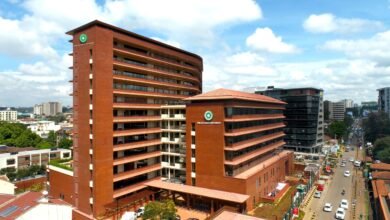
Metropol CRB Chief Executive Officer, Gideon Kipyakwai, has called upon policymakers to reform the country’s economy to suit the current realities in the wake of growing economic difficulties among Kenyans.
Kipyakwai stressed the need to capitalize on positive demographic trends, adopt new technology, and position the nation strategically in the global supply chain network.
“We need to create positive narratives that can foster positive perception and generate optimism among industry and the general public,” said Kipyakwai.
A recent survey conducted by the Central Bank of Kenya (CBK) says most banks expect over half of Kenyan borrowers and traders to default on household and business loans.
The harsh operating conditions have resulted in a notable earnings slowdown for banks.
Business loans have been affected by macroeconomic challenges such as inflation, interest rates, exchange rates, and fiscal policies.
And according to Kipyakwai, negative perceptions about the future of the economy worsen the situation, leading to more defaults in sectors like trade, manufacturing, and real estate, which together made up 58 percent of total defaults in June last year.
Manufacturing saw a significant increase in defaults, reflecting wider economic uncertainties.
Listed companies on Nairobi Securities Exchange (NSE), struggling with the economic downturn, have issued profit warnings.
Limuru Tea Plc, a major player, cited margin pressures due to various operational cost factors.
On the personal loans front, challenges such as business layoffs, stagnant salaries amid a rising cost of living, and high-interest rates contribute to a rising trend of defaults. The adoption of automation in businesses also leads to job cuts.
“The layoffs are driven by macro-economic factors affecting businesses as well as the replacement of labor by technology as many entities pursue automation,” added Kipyakwai.
Top commercial banks are adjusting to the uncertain economic and credit market conditions by significantly increasing credit loss reserves.
The financial sector is reacting to a surge in non-performing loans, which reached a record high of Ksh.634 billion by the end of October 2023, marking a 15.3 percent increase compared to the same period in the previous year.
A cumulative sum of Ksh.55.57 billion was set aside in the first three quarters of 2023 to create a buffer against the prevailing economic pressures.





